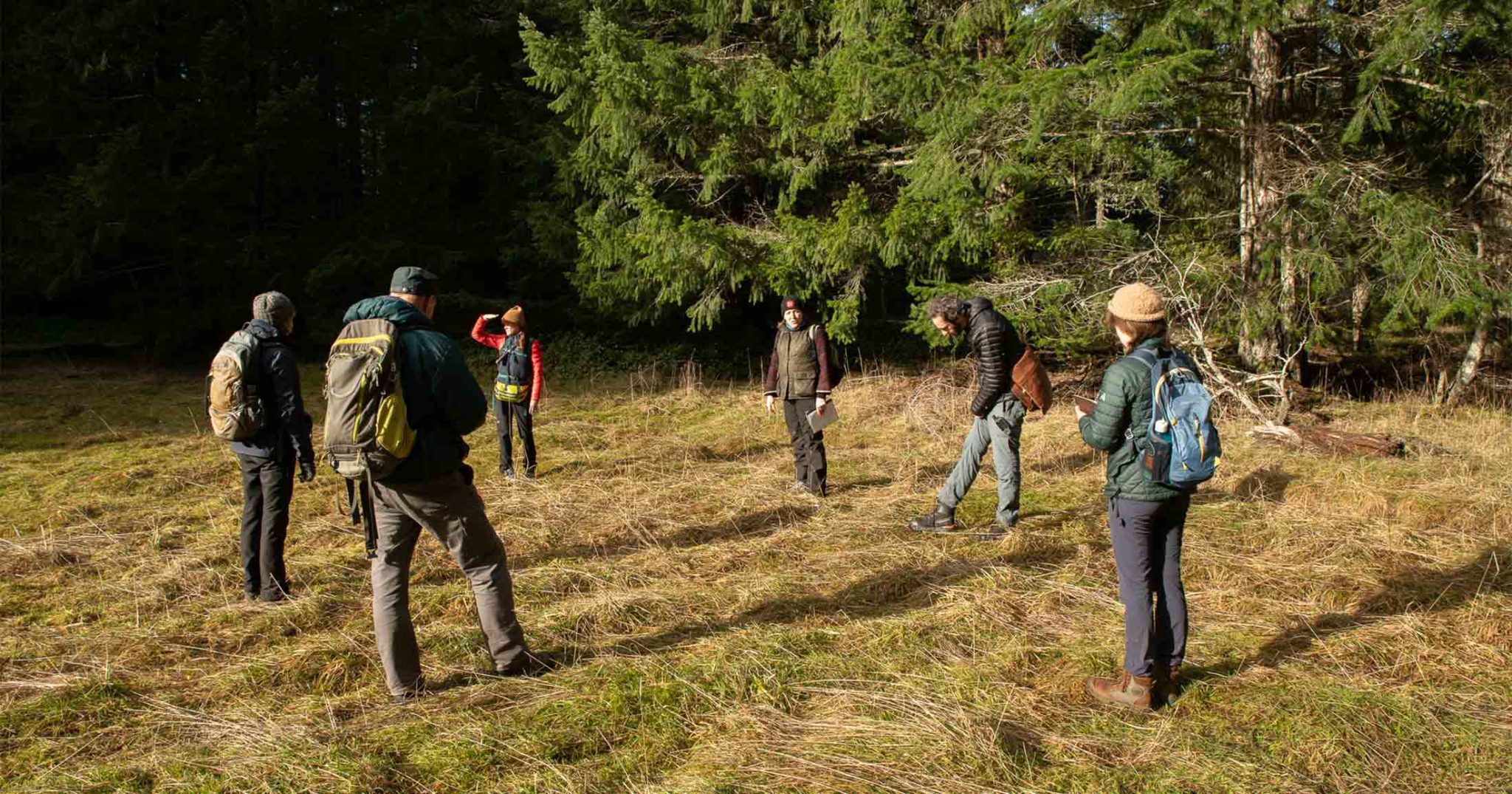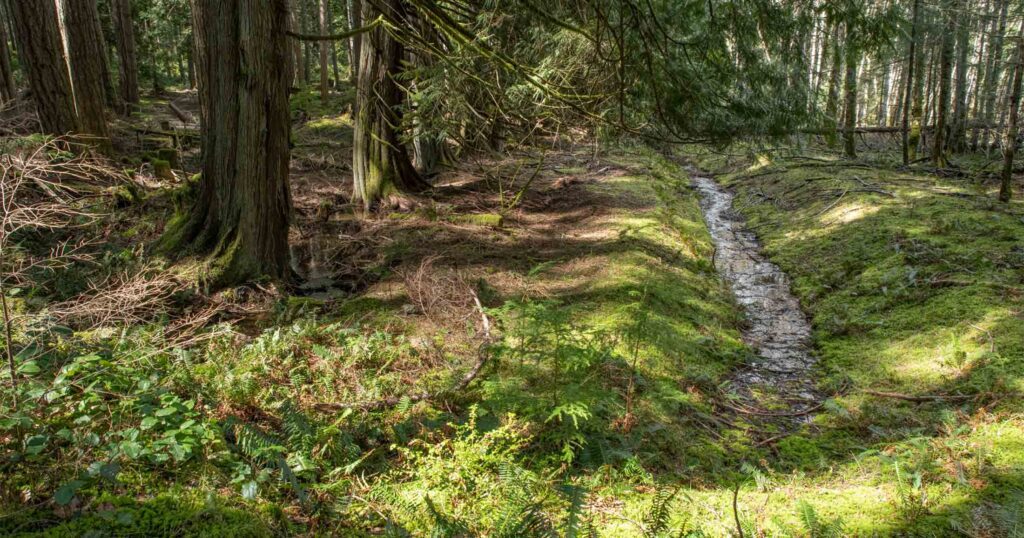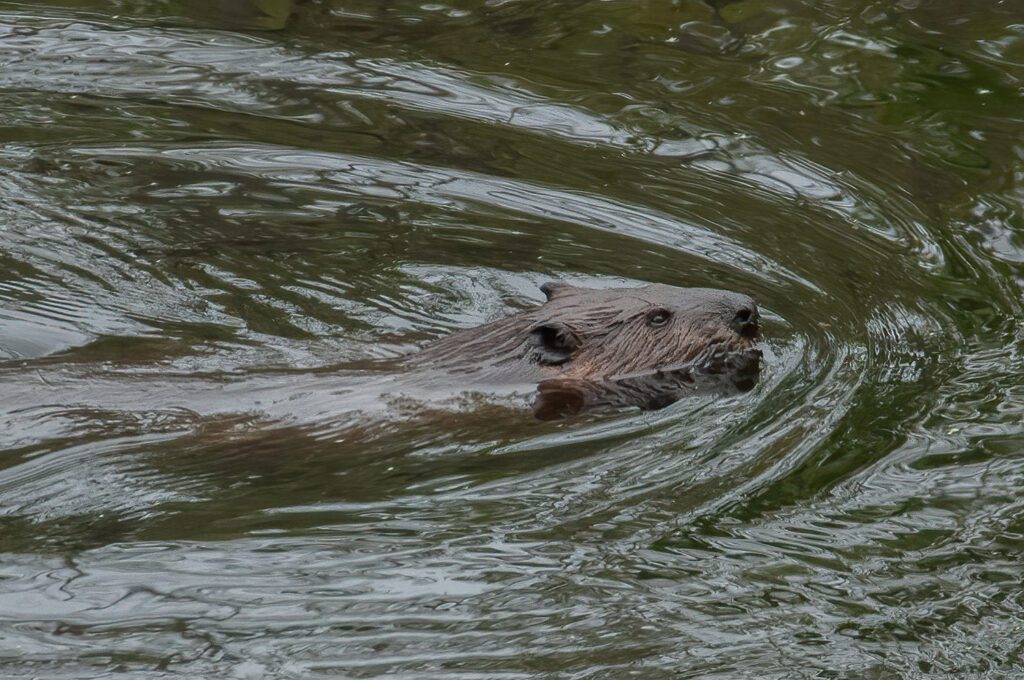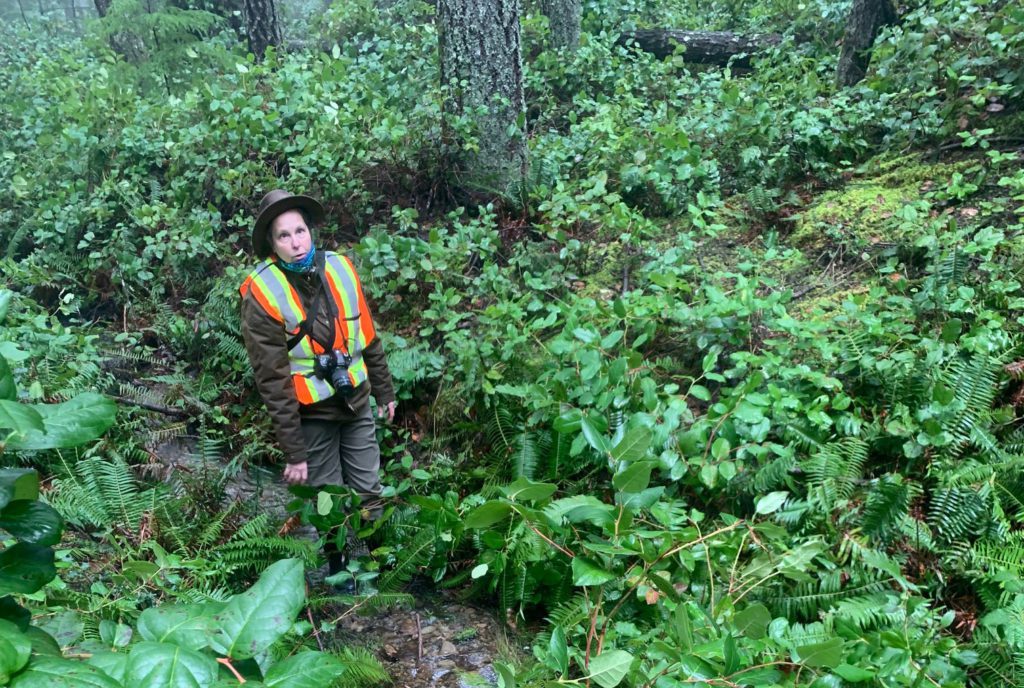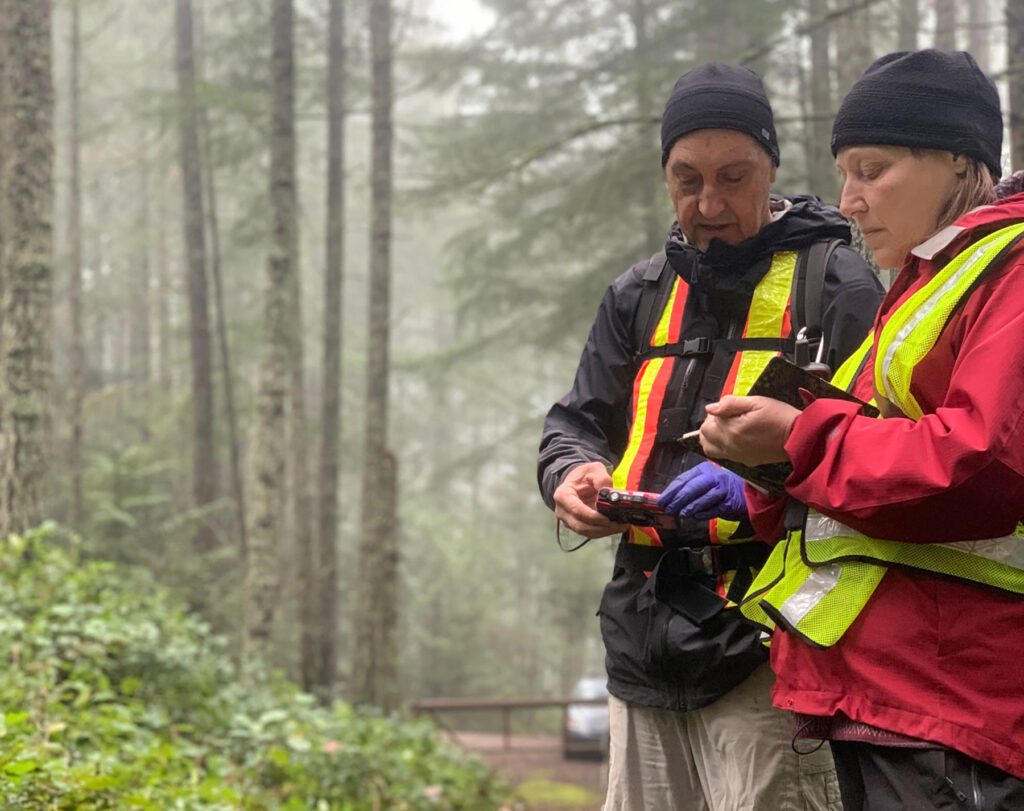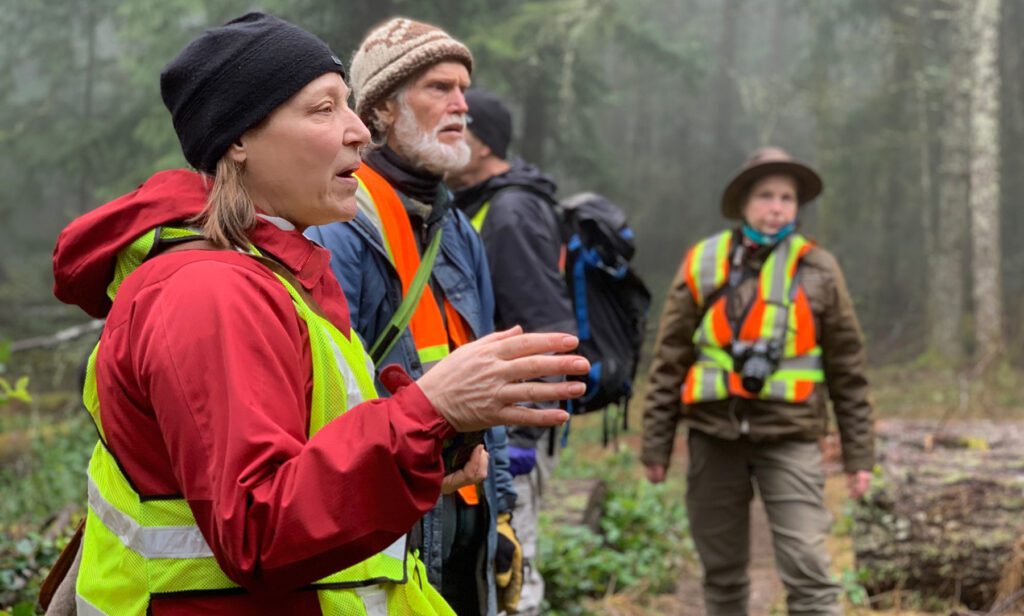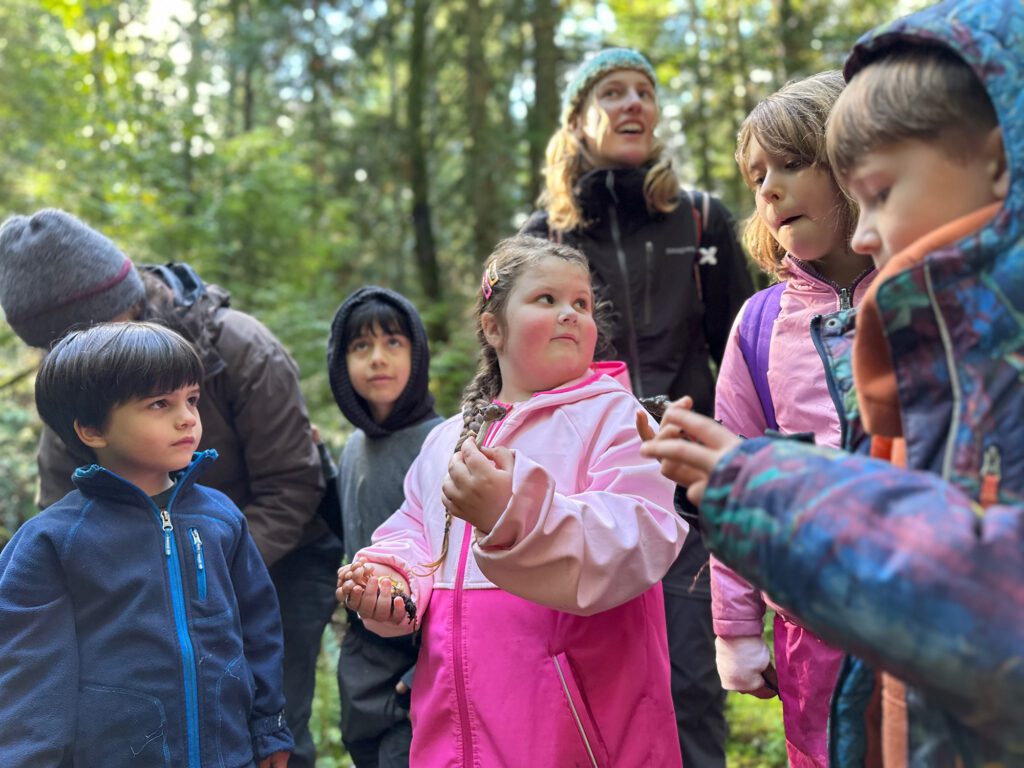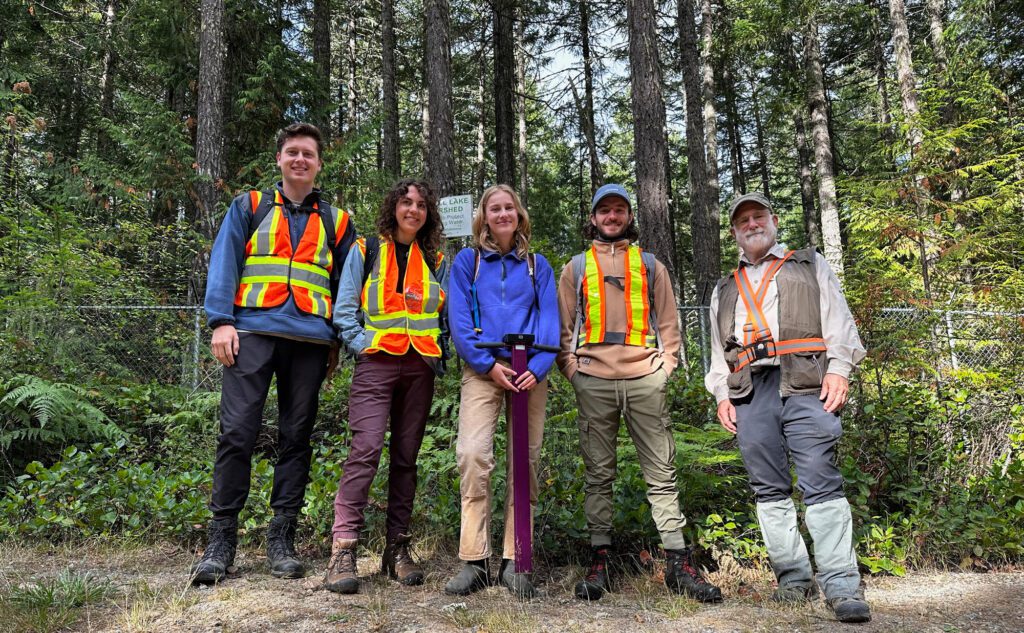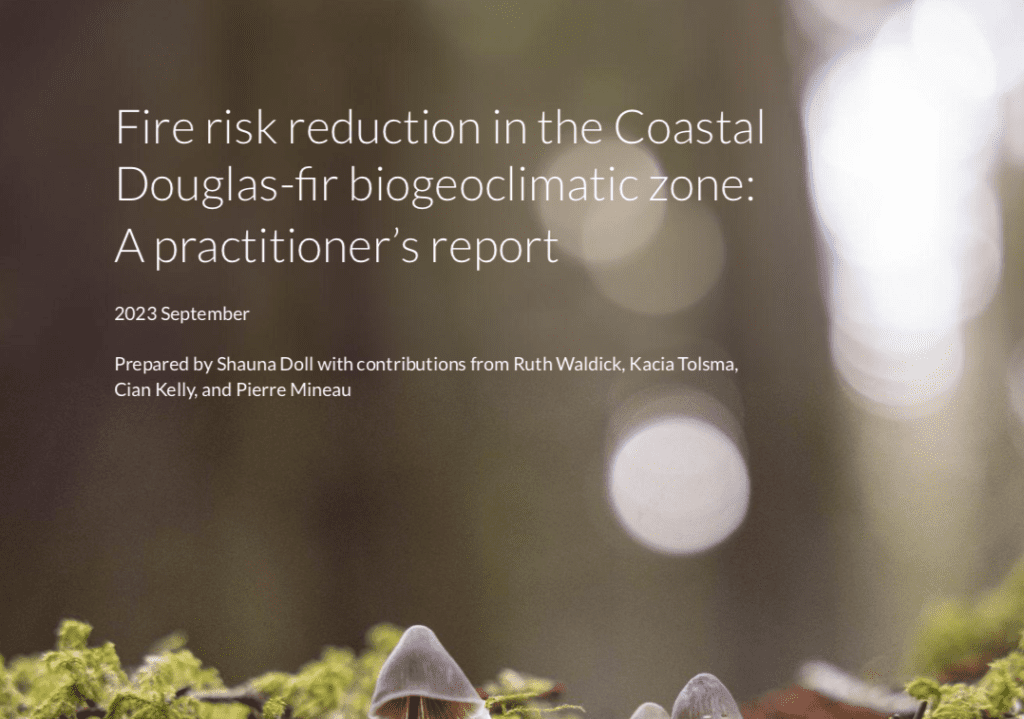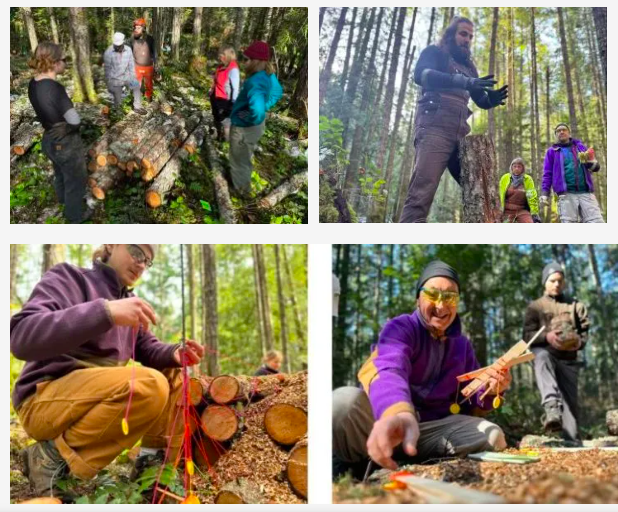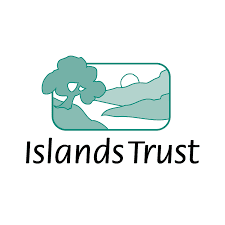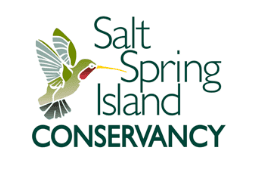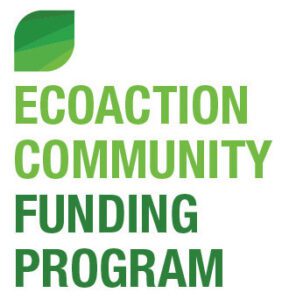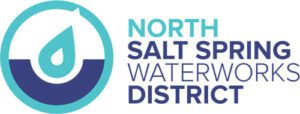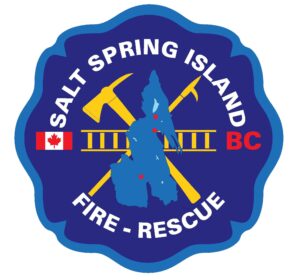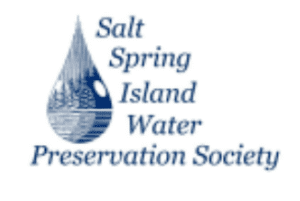Climate Adaptation Research Lab (formerly The Mt Maxwell Watershed Project)
In 2021 Transition Salt Spring secured $100,000 in federal funding and other support to initiate this groundbreaking research around fire risk intervention and resilience in the Maxwell Creek Watershed. This watershed project was chosen because of its importance in providing water to 5,500 residents of Salt Spring Island, and the existing fire risk to farms, homes, and wildlife habitat.
The objective of the project is to develop a better understanding of the status and current condition of the forests and local hydrology around the lake, notably, the potential for fire and the spread of fire, and to develop a strategy to reduce these risks.
In just two years, the Maxwell Creek Watershed Project has evolved into the Climate Adaptation Research Lab (CARL), a collaboration between North Salt Spring Waterworks and Transition Salt Spring to build resilience in the natural systems our community depends on. As of September 2023, CARL has begun a five-year research program to identify methods for fuel management (fire risk reduction) and resilience to drought. As a community project, you can watch for opportunities for students, volunteers, and knowledge holders to participate.
With four full-time young professionals joining the CARL team this September, we will be able to expand our data collecting within the watershed. Our aim? To identify areas of high restoration potential:
- Notably, biologically important riparian and wetlands areas that could enhance the water holding capacity within the watershed to improve resilience to drought.
- Areas that can function in fire risk reduction and reduce the spread of fire.
- Areas subject to flooding and erosion which affect the quality and quantity of water recharged into the Maxwell lake.
- Areas to increase native plant and species diversity.
Treatments and restoration are emphasizing priority areas, and strategies designed to improve the health of the overall watershed (eg., ground-surface water storage), enhance native biodiversity, reduce vulnerability to catastrophic canopy fire, and promote fire resilience. Protecting public and private lands in Coastal Douglas Fir dominated watersheds was identified as a top priority in Transition’s Climate Action Plan.
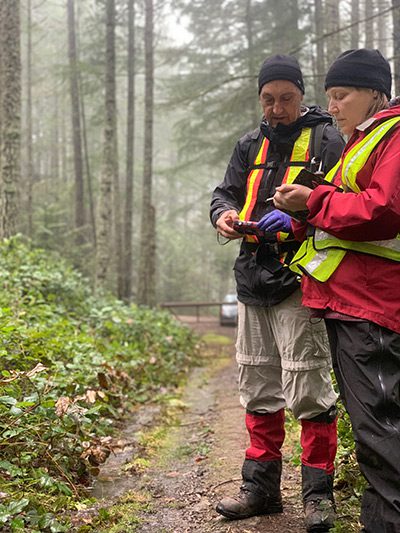
This project has expanded from a two-year study developed in partnership with North Salt Spring Water District, SSI Fire and Rescue, and the two key covenant holders in this watershed, the SSI Conservancy and the SSI Water Preservation Society, into a five-year stewardship project that considers fire risk and water.
Throughout the year you’ll see the project teams’ vehicles along Maxwell road as they continue their fieldwork.
Thank you to our local collaborative team members, the SSI Conservancy, the SSI Water Preservation Society, Local Trust, SSI Fire and Rescue, and North Salt Spring Water District.
Climate Adaptation Lab in the News
Maxwell Creek Watershed Project Field Files Part 1: Project Impetus
By Shauna Doll, Gulf Islands Forest Project Coordinator A watershed-level restoration initiative focusing on improving ecological integrity within local forests Transition Salt Spring has partnered with experts and organizations from across the Coastal Douglas-fir biogeoclimatic zone, including Raincoast Conservation Foundation, to provide a model for on-the-ground, multidisciplinary, multisectoral, and collaborative climate action. Gulf Islands Forest…
Learning from Nature: Nature-based Approaches to Restoration in the Maxwell Creek Watershed
People have relied on what we call Maxwell Lake and the surrounding watershed for thousands of years, for water, food, and other resources provided by the forests. These forests support a range of wildlife, cougars, bears, songbirds, waterfowl, amphibians, fish and beavers. The tall crowns of coastal Douglas-fir trees reach for the sky with large,…
Maxwell Creek Watershed Project
On March 2nd, some of the members of the TSS Maxwell Watershed Project Team including Ruth Waldick (TSS), Pierre Mineau (SSIC photographer), Sandra Ungerson (NSSWD Director and wetland expert), and Gary Gagné (NSSWD Director) were onsite documenting and mapping wetlands and surface water flow as a first step in understanding the hydrology of the Maxwell…
- « Previous
- 1
- 2
- 3
- 4
Beyond Climate Change: the nuts and bolts of adaptation at the local scale
Transition Salt Spring is excited to announce a free webinar featuring our very own scientist-in-residence, Dr. Ruth Waldick. She’ll speak about local adaptation in a talk titled “Beyond Climate Change: Exploring the Nuts and Bolts of Local Adaptation.” Save the Date: Sun, Dec 10, 2023, 7:00 PM – 10:00 PM PST! While climate change often…
Exploring Climate Resilience and Forests with Dr. Ruth Waldick!
Earlier this year, TSS Scientist in residence, Dr. Ruth Waldick, joined “WTF Friday,” a group on Cortes Island, to discuss climate change, fire risk, and innovative forestry practices. She talked about the impact of traditional logging methods on fire risk and the pathways to reducing wildfire threats in our region. Listen to the entire presentation…
Introducing the CARLY Eco-Literacy Project
Introducing the C.A.R.L.Y. (Climate Adaptation Research Lab YOUTH) Eco-Literacy Project, an exciting collaboration between vibrant young Salt Spring Island youth from Wildhaven School and the Transition Salt Spring Climate Adaptation Research Lab (CARL). This remarkable collaboration came about this past June when Wildhaven students came to Hwmet’utsum (Mt. Maxwell) to learn about forest management and…
Welcoming New Team Members to CARL!
We are thrilled to introduce three new dedicated team members who have joined Transition Salt Spring’s (TSS) Climate Adaptation Research Lab (CARL), each bringing unique skills and experiences to our mission. Together, they strengthen CARL’s commitment to environmental research and action on Salt Spring Island. Welcome to the team, Grace, Keegan, and Anya! Grace Fields,…
New Report Shows Us How to Reduce Wildfire Risks
Fire risk reduction in the Coastal Douglas-fir biogeoclimatic zone Read the Full Report here. Introducing a new practitioner’s report focused on reducing fire risk by increasing ecological integrity. Historically, wildfire has been an intermittent but essential disturbance regime in forested ecosystems across the country. In more recent times, the arrival of settlers and the dominance…
Climate Adaptation Research Lab – Restoring the Maxwell Watershed with North Salt Spring Waterworks District.
Climate Adaptation Research Lab – Restoring the Maxwell Watershed with North Salt Spring Waterworks District Watch this short and brilliant 5-minute video. It describes why we are doing our work in the watershed. GISS students worked with CARL team members on a restoration project in the Hwmet’utsum (Mt. Maxwell) Creek Watershed. While most students were…
Project Partners
Salt Spring Island Fire Rescue, North Salt Spring Waterworks District (NSSWD), Salt Spring Island Water Preservation Society (SSIWPS) and the Salt Spring Island Conservancy (SSIC).
The project is being funded by a $100,000 commitment from Environment and Climate Change Canada’s EcoAction Fund, $25,000 from a private donor on the island and work-in-kind offered by NSSWD.

